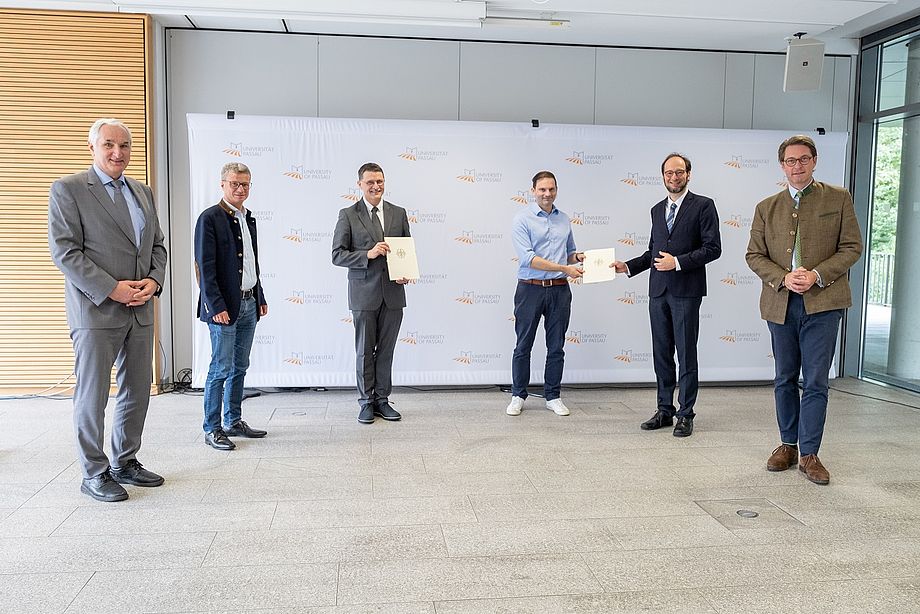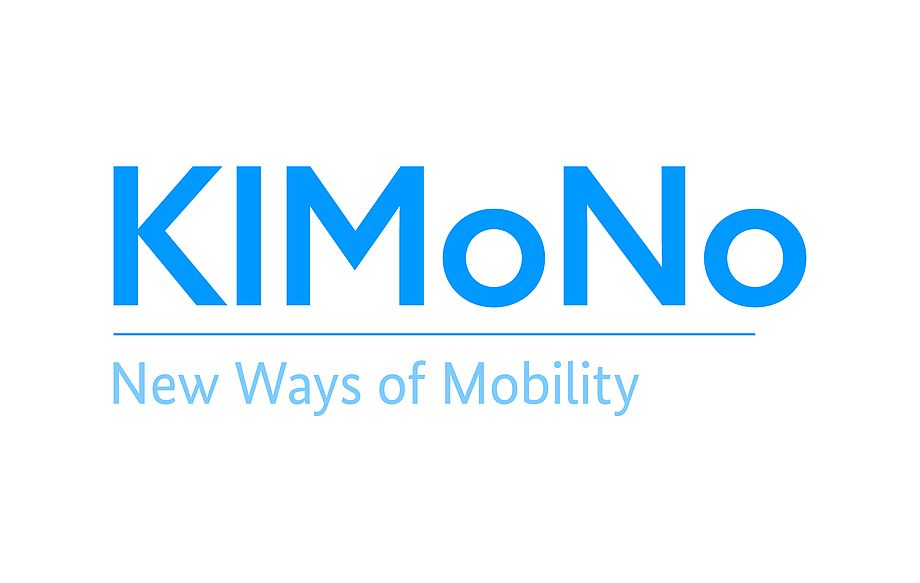The BMDV project KIMoNo: How can artificial intelligence improve our mobility?


The University of Passau will be researching how mobility can be improved in rural regions with the help of artificial intelligence. 'KIMoNo' (KI-based, multi-type optimisation of mobility in non-urban regions [1]) is the name of the project, which is being funded by the Federal Ministry of Transport to the tune of approximately 1.7 million euros.
Rural areas have requirements relating to mobility that are different to those of a large city. But whilst there are a great number of relevant studies and data available in respect of the conurbations, rural areas have so far been under-represented in research. This is where the University of Passau and the Passau IT enterprise One Logic GmbH come in with their joint project 'KIMoNo': looking at the pilot region, the rural district of Passau in the Bavarian Forest, the team from science and praxis will be researching how mobility can be improved in rural areas with the aid of artificial intelligence.
In order to be able to draw a picture of mobility outside the urban centres which is as precise as possible, the project is not restricting itself to just one form of mobility, but sees itself quite consciously as multi-type. Whether it's just an individual on a bike, automobiles that drive autonomously or interconnected convoys of lorries – the scientists will be looking at a wide range of mobility types.
Whole logistics chains will also be looked at in the project: one aspect, for example, involves intelligent sensor systems which provide information about the contents of goods transport by means of computer tomography, which in turn enables unnecessary transport routes and hazards to be avoided. Another question investigates how mobility data can be interconnected between more than one sector while still respecting people's privacy, so that road damage can be discovered sooner or empty runs avoided. Particularly with regard to data protection, edge computing, i.e. the direct processing of data on the device itself, is also an issue. The research team hopes for a higher level of acceptance of modern mobility applications among the population. Against that backdrop, the joint project is also being accompanied by researchers from the socio-economic sector. As well as acceptance, the latter will be researching the mobility aspirations and expectations of the people in the pilot region with its rural character.
Milestone 'Window on the Region'
Those involved in the joint project include, from the University of Passau, the Chair of Data Science under the leadership of Professor Michael Granitzer, the Centre of Market Research under the leadership of Dr. Stefan Mang, and the Institute FORWISS under the leadership of Professor Tomas Sauer. Prof. Sauer will be coordinating the project together with Professor Harald Kosch, Vice-President of the University of Passau for Academic Infrastructure and IT. The cooperation partner is the Fraunhofer Development Centre for X-Ray Technology (EZRT), a department of the Institute for Integrated Circuits (IIS) with facilities in Fürth, Würzburg, Deggendorf and Passau. The project team will be cooperating with the Application Centre CT in Measurement Technology (CTMT) at the Deggendorf Institute of Technology (DIT).
An important milestone in the project was the event 'Window on the Region' at the end of October 2020, which the University of Passau hosted at the same time as the informal conference of the EU ministers of transport in Bad Griesbach and Passau. There, the research team presented the first interim results of their research to the participants from all over Europe (report on the event).
[1] In German the term for artificial intelligence is künstliche Intelligenz, abbreviated to KI, which explains the name of the project: 'KI-basierte, typübergreifende Mobilitätsoptimierung in non-urbanen Regionen'.
Picture caption: All pleased about the start of the pilot project (left to right): President Professor Ulrich Bartosch, State Minister Bernd Sibler, Professor Tomas Sauer (University of Passau), Dr. Andreas Böhm (One Logic GmbH), Vice-President Professor Harald Kosch (University of Passau), Federal Minister Andreas Scheuer. Photo: University of Passau
More Information:
Article published in the Digital Research Magazine
Funded projects as part of a competition for ideas:
Learn2Win (Professor Alena Otto)
Machines in Decision Making (Dr. Malte Möller)
QuoVadis (Professor Kai von Lewinski)
| Project period | 01.04.2020 - 30.09.2023 |
|---|---|
| Verlängert bis: | 30.09.2023 |
| Website | https://www.uni-passau.de/kimono/ |
| Source of funding |  BMDV - Bundesministerium für Digitales und Verkehr |

